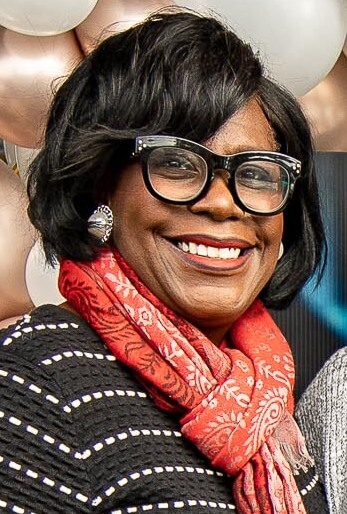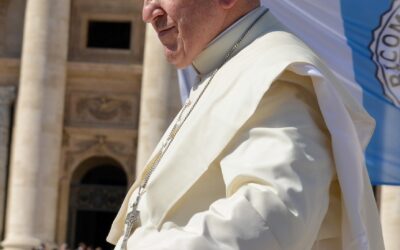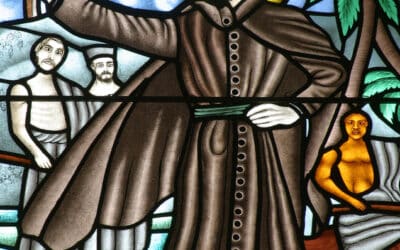On November 8, 2023, Cherelle Parker won Philadelphia’s mayoral election. Her experience in city and state politics stood out from the candidates. Her voice did, too. All the candidates said that they wanted to be mayor and had the experience to do the job. I doubted that was true for a couple of them. But not Parker. Something in her voice made you feel her confidence; you could hear the years of politics even if, like me, you didn’t already know her biography.
I want to discuss how her vision for the common good may be recognized in the terms of her inaugural address. However, I don’t want to judge her speech as if it were a presentation of the common good. That’s not what she did. She presented a plan of action.
She described what her administration would announce, launch, create, remove, and develop in the first hundred days. They want peace and security, cleaned and repaired neighborhoods, luxury houses at affordable costs, fewer permits and regulations, modern school buildings, and new round-tables.
She made this comment about peace and security, “We will declare a Public Safety Emergency and expeditiously get every available resource into neighborhoods struggling from the scourges of crime, gun violence, drugs, and addiction.” Two things came to mind. First, public safety is a societal good. Crime is what springs up in its absence. Notably, she used the good, not the absence of the good, to name the emergency. Second, public safety is an element of the ‘common good.’ That term means the sum of the conditions that allow individuals and groups to realize more of their aspirations with less effort.
God’s deeds and words are the foundation of what we know about the common good. “Let us make human beings in our image, after our likeness. (Ge 1:26)” A last is made to produce a style of shoes, and each shoe is made from that last. Steel dies are made to print a currency note, and each bill is made from the dies. God himself is the basis for the formation of the human person. Correspondingly, we are a community of persons with immortal souls endowed with intellect and will, who can freely live in keeping with the true good willed by God.
The divine impression gives us dignity. That requires freedom. It also requires the common good, flowing along its channel unobstructed by excessive or sinful inequalities.
Three things establish the common good in a society. First and most importantly, there must be respect for universal moral claims. All need “food, clothing, and shelter; the right to choose a state of life freely and to found a family, the right to education, to employment, to a good reputation, to respect, to appropriate information, to activity in accord with the upright norm of one’s own conscience, to protection of privacy and rightful freedom even in matters religious. (Gaudium et spes, 26)”
Societies need associations and institutions that promote those rights. Mayor Parker wants to establish associations, which she calls Roundtables, that “focus on business, faith-based, and intergovernmental efforts.” Religion helps form moral conscience. If Mayor Parker’s administration does concentrate on faith-based groups, it might learn more about assisting all Philadelphians to act according to each one’s sure conscience. Each resident should be able to do that without losing respect and reputation.
Also, it has been observed that when a society has a problem whereby some are respected and their rights protected, but others less so, improvements in the common good benefit the former more than the latter. If Philadelphia doesn’t promote the fundamental rights of each person, the city might not get better for each person.
The second element of the common good is ‘prosperity,’ which means developing spiritual and temporal goods. Mayor Parker wants the city to be a help and not a hindrance to businesses. Her administration thinks that some commercial permit and filing requirements are unnecessary and plans to do away with them. They will continue the city’s efforts to remove college degree requirements for city jobs when unnecessary. Good-paying city jobs will be better advertised. Investors will be introduced to minority businesses.
More important than those material goods, prosperity includes developing and sharing spiritual goods. During her inaugural, Mayor Parker spoke affectionately about Delta Sigma Theta Sorority Inc., which she is a member of. That national organization has a decades-long record of corporal works, like food and clothing distribution and awarding scholarships. But the most important goods they share are solidarity and fraternity. All their material goods come from those two spiritual goods. The most valuable things they give are perhaps tutoring and mentoring. Those are spiritual goods. Likewise, Philadelphia, historically called the “city of brotherly love,” needs more of the works that bring about solidarity and other spiritual goods.
I already mentioned the third element of the common good: ‘peace and security.’ Mayor Parker’s most passionate comments were about public safety. In 2023, the Philadelphia Police Department reported over three thousand “shooting incidents,” with over one thousand five hundred “shooting victims.” There were almost eighty thousand “property crimes.” Those statistics help us understand her strong feelings for public safety.
When crime and other evils pervert the social climate, we should pray for conversion, grace, and those with authority within political communities. Here is the Church’s oldest prayer for politicians, attributed to Pope St. Clement of Rome: “Grant to them, Lord, health, peace, concord, and stability, so that they may exercise without offense the sovereignty that you have given them. Master, heavenly King of the ages, you give glory, honor, and power over the things of earth to the sons of men. Direct, Lord, their counsel, following what is pleasing and acceptable in your sight, so that by exercising with devotion and in peace and gentleness the power that you have given to them, they may find favor with you.”







0 Comments